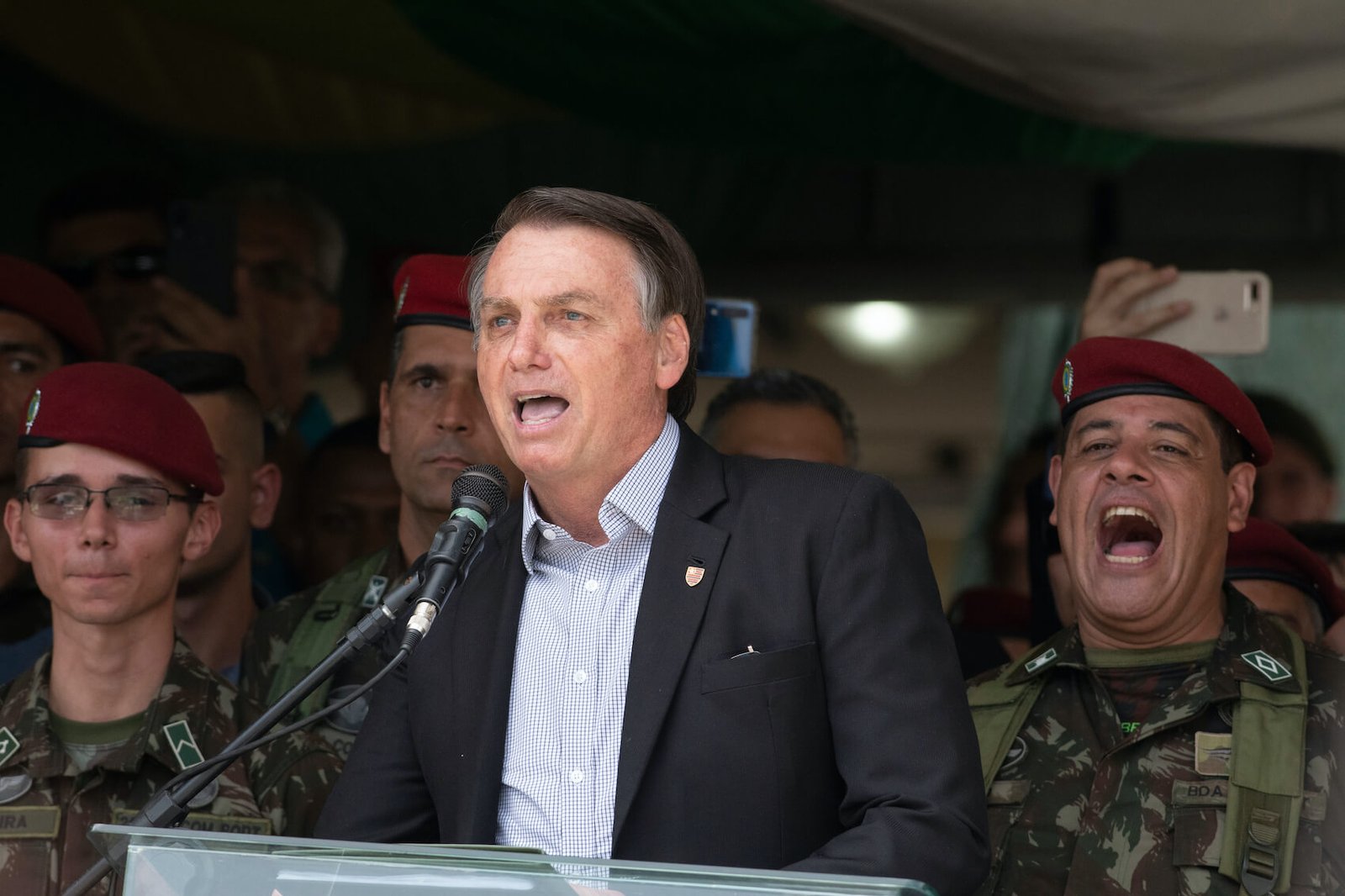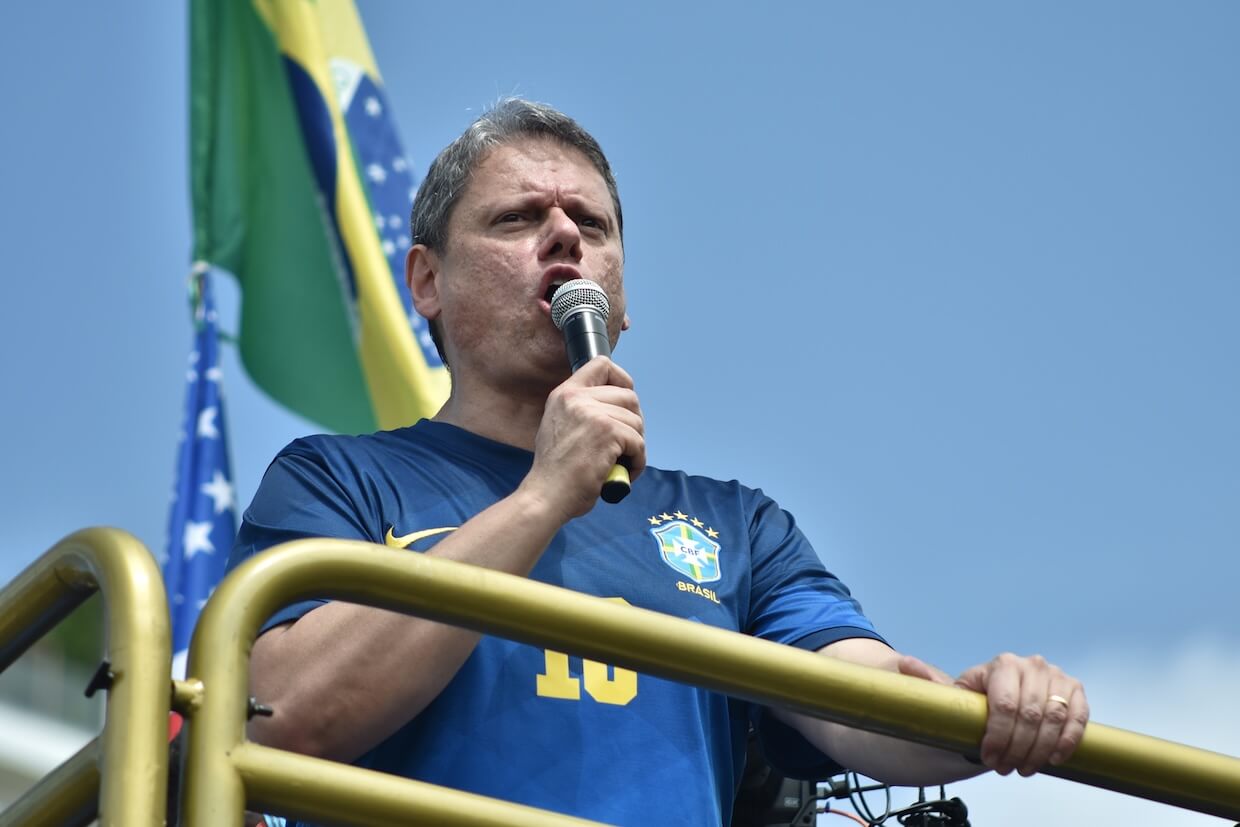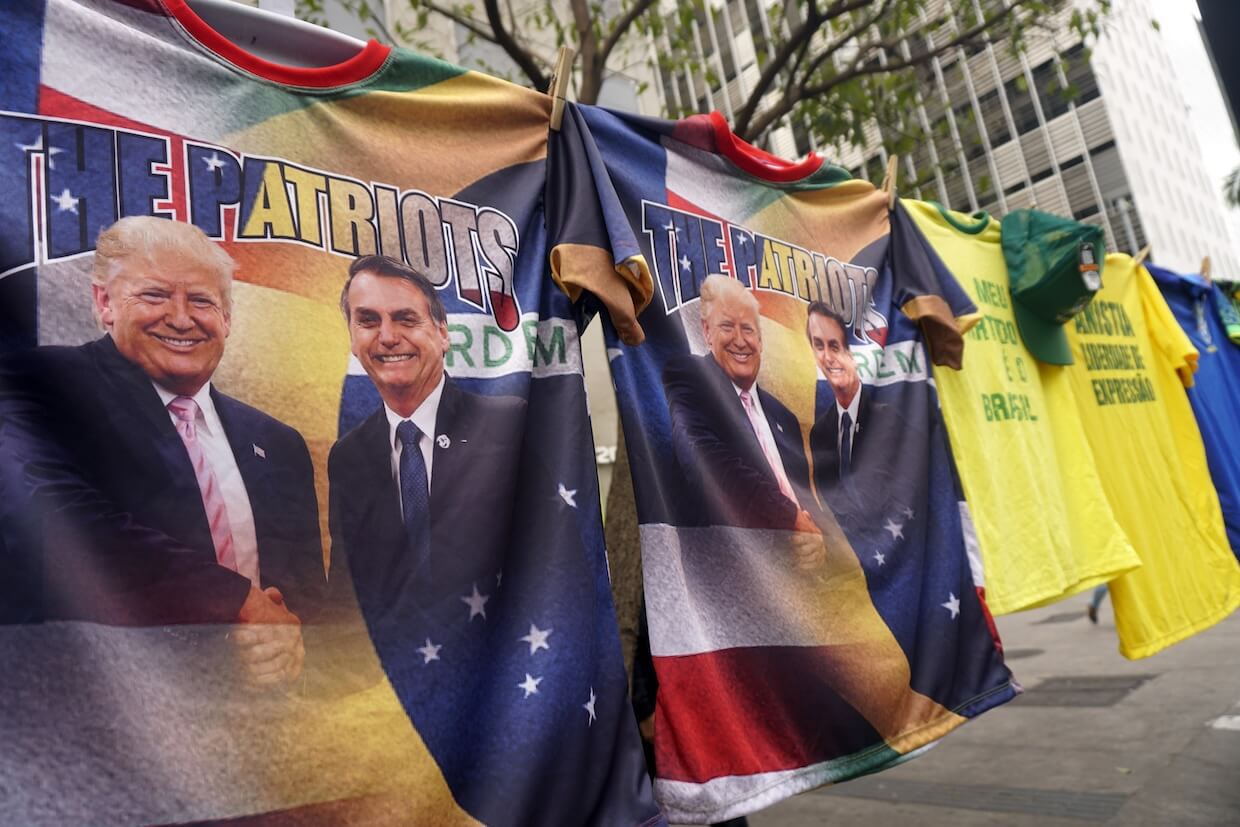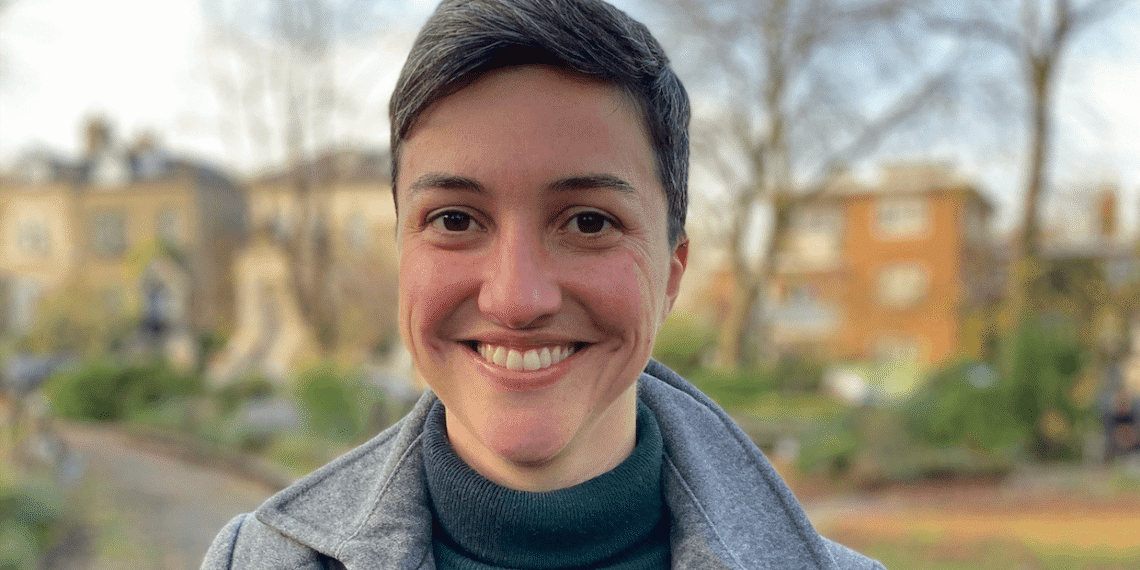In an interview with ECPS, Dr. Mara Nogueira (Birkbeck, University of London) argues that Brazil’s decision to convict Jair Bolsonaro for plotting a coup marks a turning point in democratic accountability. “By convicting Bolsonaro, we are doing what the US should have done with Trump and moving in the right direction toward democracy,” she says. Rejecting claims of judicial overreach, Dr. Nogueira stresses: “The Supreme Court is not overstepping but rather fulfilling its role.” She welcomes the unprecedented prosecution of both civil and military senior officers since the 1964–85 dictatorship, while warning that far-right actors are already mobilizing “judicial dictatorship” narratives. For her, the trial sends a crucial signal: “It’s not acceptable to plan a coup d’état—and if you do so, you will face charges.”
Interview by Selcuk Gultasli
The conviction of former Brazilian President Jair Bolsonaro to 27 years in prison for plotting a coup has generated both domestic turbulence and international controversy. While his lawyers denounce the ruling as politically motivated, and allies abroad echo claims of persecution, Brazil’s Supreme Federal Court (STF) has framed the case as a necessary step to defend democracy against authoritarian threats. Against this backdrop, Dr. Mara Nogueira, Senior Lecturer in the School of Social Sciences at Birkbeck, University of London, reflects on the political and institutional meaning of Bolsonaro’s trial in an interview with the European Center for Populism Studies (ECPS).
Dr. Nogueira underscores that the trial signals democratic resilience rather than overreach: “By convicting Bolsonaro, we are doing what the US should have done with Trump and moving in the right direction toward democracy.” She contrasts Brazil’s approach to accountability with the United States, where Trump has avoided similar consequences: “You had the foot soldiers of the Capitol invasion going to jail, while Trump not only remained free but was also allowed to run for president and become president again.”
In her view, the STF has not exceeded its mandate but fulfilled it: “I think the evidence that Bolsonaro and his conspirators attempted a coup d’état is hard to ignore, so when a crime like that is committed, it needs to be punished. The Supreme Court is not overstepping but rather fulfilling its role.” Importantly, she welcomes the fact that not only Bolsonaro, but also senior officers are facing accountability for the first time since the 1964–85 military dictatorship. “Perhaps Brazil would have had a different history if that had been done sooner,” she notes.
At the same time, Dr. Nogueira remains cautious. She observes that far-right actors are already mobilizing the “judicial dictatorship” narrative: “What they want in this case, however, is impunity. The revenge is already underway, with Congress now voting to expand its protection against legal prosecution.” She also highlights the fragility of Brazilian democracy, pointing to Bolsonaro’s 2018 victory and the January 8, 2023, attack as symptoms of unresolved cleavages. Yet she stresses that the conviction sends a crucial signal: “It does not inoculate against authoritarian relapse, but it does send a message that it’s not acceptable to plan a coup d’état, and if you do so, you will face charges.”
For Dr. Nogueira, Bolsonaro’s conviction represents both accountability and warning. Whether it deepens polarization or strengthens democratic institutions will depend on how political actors and society interpret this landmark moment.
Here is the transcript of our interview with Dr. Mara Nogueira, lightly edited for clarity and readability.
Dissent Shows Democracy at Work, Not Dictatorship

Dr. Mara Nogueira, thank you very much for joining our interview series. Let me start right away with the first question: How do you interpret Justice Luiz Fux’s lone vote to absolve Bolsonaro on jurisdictional and evidentiary grounds—arguing lack of proof, improper venue, and unmanageable case files—within Brazil’s broader debates on lawfare? Even as a majority of Brazil’s Supreme Federal Court (STF) has now convicted Bolsonaro for leading a “criminal organisation” to plot a coup, could Fux’s reasoning still provide legal ammunition for appeals, annulment claims, or retrial efforts?
Dr. Mara Nogueira: For anyone following the trial closely, Fux’s vote was not a surprise, since he had been signaling this divergence with the reporting judge for a while. That said, his vote was surprising given his prior positions in the trial of the participants in the invasion of Congress on January 8, 2023, and his overall trajectory in the Supreme Court. So, it was unexpected when considered in light of his own trajectory rather than what was anticipated of him in this trial.
I think he attempted to give a technical veneer to an 11-hour vote that was eminently political. His judgment essentially shifted depending on who was being accused. He was clearly speaking to a wider audience rather than to his peers. But I don’t see his lone vote as an issue; on the contrary, in a democracy with functioning institutions, dissent is part of the process.
The fact that Fux was able to voice his dissent, contrary to what the far right argues, shows that there isn’t a dictatorship in Brazil. In a dictatorship, he wouldn’t be allowed to dissent or he would have faced persecution for doing so. Neither of those things happened. Instead, he is facing criticism from part of the public and being celebrated by others, which is not abnormal in any sense.
But I don’t think his vote changes anything. At the end of the day, Bolsonaro and his co-conspirators were convicted, and I believe, rightly so. In a highly politicized trial such as this, of course, Bolsonaro’s supporters will seize on anything to twist the facts and argue for his innocence. They will push as far as they can, but in the current context, I don’t see how this trial could be overturned, even if it went to the plenary.
That said, a future annulment would obviously depend on how the political landscape in Brazil evolves in the coming years, and it’s very hard to predict, in my opinion. The Supreme Court is not isolated from the broader political climate, and changes in its composition under, for instance, a future far-right government could have consequences. We only need to look at the US to see what that might look like. Still, I think that by convicting Bolsonaro, we are doing what the US should have done with Trump and moving in the right direction toward democracy.
Convicting Bolsonaro and the Military Officers Shows Institutions are at Work
With the STF asserting unprecedented authority—convicting a former president and top generals, placing Bolsonaro under house arrest, and wading into disinformation inquiries—does this expanded role bolster democratic resilience, or risk normalizing states of exception that revanchist actors can exploit as evidence of “judicial dictatorship”?
Dr. Mara Nogueira: As I already mentioned, by looking at the US, you can see the consequences of not prosecuting an attempted coup d’état. The US now has a president with unprecedented authority, backed by a Congress that is essentially on his side, and a very politically aligned Supreme Court. So, you can ask, where are the checks and balances in the US right now? Of course, I’m not an expert in American politics, but the current state of affairs seems to imply that the US president can do as he pleases, including attempts to influence judicial proceedings in a foreign country, as he is trying to do in Brazil.
I think the evidence that Bolsonaro and his conspirators attempted a coup d’état is hard to ignore, so when a crime like that is committed, it needs to be punished. The Supreme Court is not overstepping but rather fulfilling its role. And I see it positively that not only a former president but also the military are, for the first time in Brazil’s history, being convicted for attempting to abolish the democratic rule of law. Perhaps Brazil would have had a different history if that had been done sooner.
But as I said previously, the far right will attempt to exploit what happened to paint a picture that we live in, as you say, a judicial dictatorship. What they want in this case, however, is impunity. The revenge is already underway, with Congress now voting to expand its protection against legal prosecution, for instance. There is also ongoing discussion about a bill aimed at the participants of January 8. This bill is nicknamed the Amnesty Bill, though it should be called, in my opinion, the Impunity Bill, because what Congress is trying to do is to reinterpret the notion of amnesty to appease a political group and perhaps set, what I believe, would be a very dangerous precedent.
This idea that Fux mentioned in his speech—that the January 8 participants were a disorganized or unruly mob—is preposterous and ignores the broader context in which the invasion of Congress occurred. Yes, they were unable to overthrow the state, thank God, but they failed because the rest of the plot didn’t work out, and their leader, Bolsonaro, knowing the plan had failed, fled to the US.
All that said, I’m not a particularly optimistic person, and I am not a big fan of the kind of worship the Supreme Court judges are receiving these days, but in this instance, I think they are performing their duty, which is to safeguard the democratic rule of law in the country. A dictatorship would imply the suppression of other powers and an authoritarian ruler, and this is not what’s happening in Brazil right now. Only those living in far-right bubbles will interpret the context in that way.
No Crisis Between Government and Military Despite Convictions

The conviction encompassed senior military officers for the first time since the 1964–85 dictatorship. How does this reshape Brazil’s civil–military relations, especially in a context where the armed forces remain politically salient and segments of society view them as guarantors of order?
Dr. Mara Nogueira: That’s quite an interesting point. Historically, the military has been behind all the successful coups in Brazil, and there have been several. So, as I already mentioned, I see it positively that after so many other instances, the military is finally facing legal consequences for its actions.
I’ve been following the media coverage of the trial very closely, and I don’t think, at least from my perspective, that this has been a major point of discussion. As far as I can tell, there is no crisis at the moment between the government and the military, or between the Supreme Court and the military, and perhaps that has to do with the surprising fact that the military played an important role in preventing this particular coup d’état from succeeding.
Just one of the military commanders, Almir Garnier Santos, who was the commander of the Navy under Bolsonaro, was convicted. Out of the three military commanders, he was the only one who went along with the plan. For many analysts, the coup failed because it didn’t have the support of the Army and Air Force commanders, who refused to join the plot.
Of course, they could have done more than just say no and could have denounced the coup, which would have given even more credibility to the trial. Still, their role in this case was ultimately positive, and that may help explain why the coup didn’t succeed, and also why the military has not been the main focus of media coverage or public discussion.
Brazil’s Democracy Is Fragile—But Functioning
As school curricula, memorials, and policing doctrines institutionalize January 8, 2023, how do these “memory practices” shape collective political identities? Do they inoculate against authoritarian relapse, or entrench binary cleavages that revanchist actors can instrumentalize?
Dr. Mara Nogueira: I think it’s still very soon to say how this particular event will be narrated in Brazilian history. That’s yet to be seen. But if you take, for instance, the 1964 military coup, the military, to this day, celebrate the date as the day of the revolution. They call it the revolution rather than the military coup. Bolsonaro himself has praised prominent members of the military dictatorship, such as Carlos Alberto Brilhante Ustra, who was notorious for leading torture and repression during this period.
The dominant view of 1964 today, however, is that it was a coup d’état that installed a violent dictatorship in this country, which ended, in fact, quite recently—1985, as you say. It’s not the only view, but it is the one that students, for instance, will learn about in school.
As I said, democracy in Brazil is still young, and one might say it remains quite fragile. I see Bolsonaro’s victory in 2018, despite his authoritarian rhetoric, as a sign of that fragility. The fact that he and his core conspirators felt emboldened enough to attempt a coup also shows how fragile democracy is. But I don’t see his conviction as a demonstration of this fragility. On the contrary, in this instance, I see it as a sign that democratic institutions are working despite that fragility.
I am, like many other social scientists and observers, concerned with the political cleavages in Brazil, but I don’t think this is unique to Brazil right now. The far right is on the rise globally, and one could ask, for instance, whether January 8 in Brazil would have happened if the Capitol invasion hadn’t occurred in the US, or if the real leaders of the Capitol invasion had been punished. One could also ask what would have happened if Trump had been the US president in 2023.
I think punishment in Brazil’s case does not, as you say, inoculate against authoritarian relapse, but it does send a message that it’s not acceptable to plan a coup d’état, and that if you do so, you will face charges. That’s a good message for the country to be showing the world right now.
Tarcísio de Freitas Seeks to Inherit Bolsonaro’s Capital

Building on your work on “entitled anger,” how is middle-class resentment mobilized around the trial—particularly in claims that the STF has usurped sovereignty and thwarted the popular will?
Dr. Mara Nogueira: My work on revanchist populism and entitled anger is about the rise of far-right populism globally, and particularly in the Global South. Revanchist populism is a term that I coined with my colleague Ryan Centner. And what we are doing with this is describing what we see as a turn in political imaginations towards the retaking of the nation in line with a powerful discourse of "the people" and righteousness. And we see this mapping onto populations who nostalgically sense they have lost what was rightfully, morally theirs, which might be regained by applying an angry sense of entitlement to an alternative and often authoritarian exercise of government.
In this context, the Brazilian middle class has been particularly described as resentful and an important support base for the far right. But I don’t think alone middle-class resentment can explain recent political cleavages in Brazil. Going back to your question more specifically, as I already mentioned, of course, the Supreme Court decision will be mobilized by the far right to fuel particular understandings of the current political situation in Brazil. There is a group of die-hard Bolsonaro supporters that will buy into any narrative that the far-right leaders produce. But I don’t think the future of Brazilian politics depends on this particular group, but more on the voters who are moderate and will swing their vote depending on a broader understanding of the situation.
It’s clear from his more recent speeches that the current São Paulo governor, Tarcísio de Freitas, is trying to position himself as the heir of Bolsonaro’s political capital and the natural candidate of the far right in the next presidential election. Some of Bolsonaro’s electorate will naturally transfer to whoever he decides to support, and that is significant, but not enough to win the next election. We have to remember that Bolsonaro himself lost the last election to Lula—by a small margin, of course—but he still lost. So, what I think is under dispute is the interpretation of current events by this broader population, who are not loyal to either Lula or Bolsonaro.
And it’s interesting that you touch on sovereignty, because it’s a very hot topic in Brazil at the moment—not because of the Supreme Court decision, but because of Trump’s attempt to interfere with the judicial process in Brazil. Lula’s popularity has recently increased slightly because he was gifted this position of defender of Brazil’s sovereignty in response to Eduardo Bolsonaro’s lobbying that led Trump to raise tariffs on Brazilian products to 50%. So, in this context, it’s difficult for the far right to play the sovereignty card while conspiring with Trump to penalize Brazil’s economy.
Urban Poor in Brazil’s Peripheries Hold the Swing Vote
What spatial patterns (capitals vs. peripheries; South/Southeast vs. North/Northeast) do you observe in post-verdict mobilizations, and how do they map onto Brazil’s longer histories of regional inequality and uneven development?
Dr. Mara Nogueira: I don’t have the data to comment specifically on the geography of how people are reacting to the trial, but if we look at Bolsonaro’s 2018 election, when he was victorious, we can find some evidence of the geographies of far-right voters and supporters in Brazil. The work of Matthew Richmond and Lisa McKenna, colleagues of mine, examined the geography of the votes in 2018.
The interesting thing here is that, unlike in the US, or in the case of the UK and Brexit, the geography of the vote in Brazil is not the traditional urban versus rural pattern. What their work pointed out is that the votes of the urban poor have been decisive in the last elections in Brazil. In particular, the votes of the urban poor in the peripheries of big cities have been swinging between the left and the right throughout the years. The explanation for this has to do with major changes in Brazilian society—from the growth of evangelical church influence to enduring criminality, which affects the urban poor more prominently, for instance.
In my own work, I have focused on changes in the global labor market and how they also play a role in the new political landscape that breeds the far right. Again, if you think of the case of the US and the UK, you see deindustrialization and the loss of stable jobs alongside austerity and neoliberalism, which have impoverished particular groups. Immigration, in these cases, has then been used as the far-right scapegoat to channel this entitled anger into votes.
In the case of Brazil, we have historically had a very stratified labor market with widespread precarity, and this has also grown as a consequence of neoliberalism and deindustrialization. But the traditional left in Brazil grew out of industrial trade unionism, and now there is this huge population of workers outside formal wage relations who don’t feel represented by these traditional left-wing narratives. So, when you think about geography, these spatial inequalities interact with wider social and economic dynamics, and my point is that if progressive politics doesn’t find ways to speak to this new workforce, far-right narratives offering simple solutions to complex problems can fill this gap.
With Bolsonaro confined to house arrest and restricted from social media, how has the street/platform nexus of contention shifted—especially regarding plazas, evangelical pulpits, WhatsApp/Telegram ecosystems, and diaspora mobilization in the US?
Dr. Mara Nogueira: All the arenas you mentioned have long been part of the political landscape in Brazil, and the far right has been very effective at capitalizing on social media, perhaps because their extreme language and rhetoric are well suited to generating engagement—the very thing that drives these platforms. I don’t see this scenario changing with Bolsonaro’s arrest. The main question at the moment, as I already said, is who will inherit Bolsonaro’s political capital and represent this far-right group in the next election.
The Left Must Speak to Precarious Workers or Risk Losing Them to the Far Right

How does the trial intersect with the politics of informal work and the gig economy? Are precarious workers—street vendors, delivery app couriers—recalibrating their partisan attachments in light of the conviction, or holding steady?
Dr. Mara Nogueira: Again, I think it’s very soon to say how particular groups of workers are reacting to the trial. We don’t have the data. But as I already mentioned, this mass of precarious workers that characterizes Brazil’s economy plays a key role in current affairs. Of course, they are more than workers, and they have other affiliations that might also impact their political behavior, but the point that I have been trying to make in my own work is that this group feels underrepresented in political debates.
The left tends to view informality solely as an issue of precarity and exploitation, and its responses to the growing changes in the experience of work have been inadequate. In my research, I focus on street vendors who have been criminalized by local governments and feel attacked by exclusionary policies that constrain their ability to work on the streets and earn a livelihood. The left’s response has been to insist on wage work and development as solutions that will eventually incorporate everyone into the regular labor market, but workers are not necessarily on board with that. People’s desires for autonomy and flexibility are often interpreted negatively, in this context, as signs that these workers have been indoctrinated by neoliberalism.
What we need to understand is that for a huge proportion of people in Brazil, wage work was historically either unattainable or represented a precarious inclusion through low-paying jobs, where people had to endure excessive hours and, more often than not, harassment and humiliation. For many, the far-right promise of disruption feels like a real hope for change. Globally, the far right has succeeded in large part because it taps into real suffering and mobilizes genuine frustration by offering the hope of disruption.
Moreover, in some ways, the left has become a conservative political force, protecting abstract values that do not necessarily resonate with people’s everyday struggles. The new realities of the labor market and of society at large demand bolder thinking and out-of-the-box policies that can address the challenges of people’s lived realities. For instance, Zohran Mamdani’s political platform for the New York City mayoral election is a good representation of what I’m talking about. In Belo Horizonte, Brazil, where I do most of my research, there is a bill up for a vote to implement free bus fare, which is also very interesting. So, there are some promising developments, and there is a progressive way out of this tough political landscape that we are living through.
Brazil’s 2026 Race Has Already Begun
Within Bolsonaro’s coalition, how are key pillars—evangelical leaders, police unions, agribusiness lobbies, military clubs—reframing their narratives after the verdict? What does this suggest about the durability or the recomposition of his revanchist base?
Dr. Mara Nogueira: It’s an interesting question. One day after Bolsonaro’s conviction, the Folha de São Paulo, one of Brazil’s most important newspapers, ran a headline on the twin deficit in Brazil and the dangers of Lula’s third mandate for the economy. What happened, essentially, is that Bolsonaro had become an issue, and his conviction was applauded by the major media because they wanted him out of the presidential race. But the big players you mentioned also don’t want a fourth Lula mandate.
In the lead-up to the 2022 election, there was an attempt by the major media to create the idea of a third way. Some had hoped, for instance, that João Doria, the former governor of São Paulo, or even Luciano Huck, a famous TV presenter in Brazil, would be presidential candidates to represent this third way and overcome Brazil’s polarization. But that didn’t happen, and I do not see it happening in 2026 either.
What I think will happen is a repositioning of political support. Tarcísio de Freitas, the current governor of São Paulo, seems to be the natural choice to replace Bolsonaro as Lula’s main opposition in this polarized economic and political landscape. But he will face a very difficult task in his campaign: essentially paying homage to Bolsonaro and capitalizing on his support, while at the same time trying to present himself as a more moderate and market-friendly politician. It will be a hard act for him to pull off.
How successful he is will also depend on what happens in Brazil between now and the election. There is already a sense that the presidential race has begun, and PT, Lula’s party, is currently treating Tarcísio as the main opposition.
Fux’s Vote Echoed the US Pattern of Punishing Followers but Acquitting Leaders

Do you observe unequal “graduations” of culpability—between January 8 “foot soldiers” and political principals—that echo Brazil’s broader selective enforcement of law (e.g., in housing or labor), thereby reinforcing perceptions of institutional bias?
Dr. Mara Nogueira: I don’t think so. I keep going back to the US, but I think it’s a useful parallel. That happened in the US: as you say, the foot soldiers of the Capitol invasion went to jail, while Trump not only remained free but was also allowed to run for president and become president again. If there is any echo of that in Brazil, it’s in Fux’s vote. As I said in the beginning, he voted for culpability for the January invaders but acquitted Bolsonaro, so his vote reflects a bit of that. But the Supreme Court decision has been coherent in the sense of condemning both the foot soldiers and what they perceive to be the leaders of this movement.
Lastly, Bolsonaro’s defenses—claims of witch-hunts, persecution, procedural overload—resonate with Trumpist repertoires. Where do Brazilian specificities (evangelical media ecosystems, military memory, police syndicates) create distinct discursive frames?
Dr. Mara Nogueira: In terms of the rhetoric, Bolsonaro’s entire act is very much aligned with Trump’s, so I don’t see much difference there. But of course, the content and the way he speaks to his political base are, as you say, shaped by Brazilian specificities, particularly the conservatism of his supporters. The differences between Brazil and the US have more to do with the essentially different composition of the two societies—social, economic, cultural, and, as we already discussed, geographical—and how Brazil differs from the US.
In terms of discursive frames, however, there is a kind of right-wing rhetoric that is common to different political leaders within this spectrum, modulated to speak to particular groups of supporters shaped by their culture and, in the case of Brazil, by religious positions within society.


